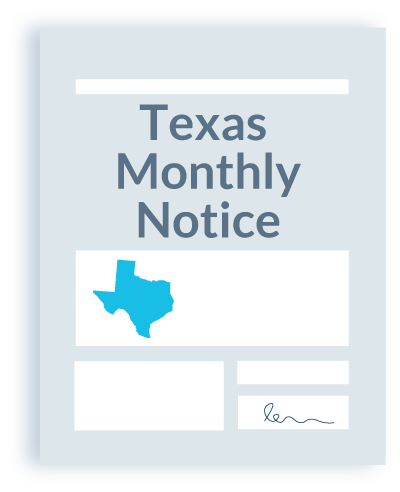
During 13 years in the Texas construction industry as a credit manager, I remained focused on the importance of networking, industry credit group participation, continued education, and third-party resources to stay in touch and up to date throughout every means possible.
This was to help ensure I was kept aware of what’s happening legislatively, because it can and — and usually does have a very real impact on our ability to collect and extend credit.
In “How Texas Lien Law Was Won: The Fight Against a Legislation Change,” I mentioned that there was a strong chance the Home Builders Association and the General Contractors Association would re-introduce bill HB2237 — and this year they did.
The revised Texas HB2237
HB2237 was introduced to the Texas Legislature in February 2021.
A public hearing in the Business and Industry Committee was scheduled for April 6, 2021, in the Texas House of Representatives, sponsored once again by State Representatives Joe Deshotel (D) and Dustin Burrows (R).
This new version of the bill was improved from the one they tried a couple years ago — however, there are still aspects that could have negative effects on subcontractors and suppliers if put into law.
Here is a quick overview of some effects HB2337 proposes:
- Removes the second month notice
- Shortens the Statute of Limitations on suit of a lien from two years to one year
- Simplifies the deadline to file a lien on retainage to the third month
- Takes away the requirement that notices and liens be sent by certified mail (therefore no proof of delivery/receipt)
Texas’ second month notice
If the second month notice requirement is removed, subcontractors would have no reason to pay in a timely manner. General contractors wouldn’t have to pay subcontractors timely because the sub or supplier wouldn’t have any “Hammer”. Suppliers would have extended credit for months (and possibly more) due to the fact their “hammer” (the second month notice) would be removed.
The second month notice is a valuable tool that allows suppliers to extend more credit, including to customers who may have questionable financial status, simply because they can put some of that risk off to utilizing lien law and that second month notice.
The day of the hearing, NACM (National Association of Credit Management) called on their members to help address these issues in front of legislation. Of the 17 attendees total who spoke at the hearing, 14 were NACM members who voted against the bill. The other three — members of AGC (Associated General Contractors), Texas Air Conditioning Contractors Association, and Texas Construction Association — spoke in favor of the bill.
The only potentially beneficial aspect for subcontractors that HB2237 proposes the following:
You would get an extra day or two to file your lien and/or fund trapping notice by pushing the deadline to the day after the weekend and/or holiday — instead of the Friday before.
At time of reporting, the bill had still not left the House Committee.
Texas construction associations weigh in on HB2237
I spoke with the three associations that were in support of the bill, as well as organizations who opposed it.
Phil Thoden, President of the Austin Chapter of the AGC, stated: “The AGC Texas Building Branch (TBB) supports simplifying lien laws, as in HB2237, and has long engaged with industry partners toward this goal. The current bill is going through various changes (at this time our legal team has yet to review a committee substitute) so I can’t comment on specifics as things are fluid but, again, we are working with others in the industry to simplify Texas lien laws.”
“Our company members are commercial builders — including general contractors, specialty contractors, and suppliers —working throughout Texas,” Thoden said.
“We support the lien law changes presented to legislation for house bill H2237,” said Shannon Noble of Texas Air Conditioning Contractors Association. “We feel anything that can help our member base and make things less confusing for them is a bonus to all. We are not sure what is going to happen, however, will support this through legislation, all the way.”
Jennifer Fagan, Vice President of Government Affairs with the Texas Construction Association said: “The Texas construction lien law system needs to be modernized to enable general contractors and subcontractors to more easily comply with the law without having to engage legal counsel for each project.”
“TCA supports measures to eliminate the second month notice, adopt statutory notice forms, and clarify and conform confusing terminology in the statute,” Fagan said.
Tami Behner, CCE, Credit and Finance Professional for Barnsco, objected to one main section of the revised version of the bill: the elimination of the second month notice.
“The second month notice is so important for our cash flow,” Behner said. “You know for yourself how many customers pay before the 15th to avoid that first notice out. The bill as originally written eliminates that notice and doesn’t require a notice until the 15th of the third month. Many customers would just put off paying until that notice was due to be sent. This delay would inevitably lead to more actual liens needing to be filed just due to timing alone.”
Due to the wording of the bill, many are concerned that if notices were sent early, it could be construed as “tortious interference” — possibly exposing a company to litigation.
Representative revises bill to address supplier concerns
The author of the bill, Representative Burrows, was in attendance. He reached out to NACM SW attorney, Perrin Fourmy, senior associate at Bell Nunnally and Martin, LLP to negotiate another revision. Burrows claims he is going to add “permissive language” to the bill to allow suppliers to continue to send second month notices to GC’s without any repercussions.
Anne Scarcella, Territory Credit Manager for Crawford Electric Supply, was also in attendance.
“Participating in the hearing did make me feel like we were having a positive impact in the legislative process,” Scarcella said. “I think it is important for the legislators to know how the changes they may be in favor of can negatively impact what we do every day. If we don’t tell them, they wouldn’t have any idea.”
She continues “while some of the proposed changes do a nice job of cleaning up ambiguity in the bill, removal of the preliminary notice requirement would certainly not only slow down collections, but cause a riff with customers. We need that language in the statute to provide cover when sending the first notice.”
“After the testimony, I had a great conversation with Representative Jasmine Crockett after our testimony. She was very interested in our position and asked a lot of questions about why this was so important to Crawford Electric Supply and other material suppliers.”
Scarcella additionally states “I do think we accomplished what we set out to do. From what I understand, the bill is expected to make it out of committee, with changes in the language. So that is a WIN-WIN for us!”
Thanks to the input of construction professionals, the House amended the language in the bill that the suppliers spoke about. Committee members included new verbiage that allows the second month notice to be sent to the general contractor and property owner. This is a substantial change for all subcontractors and suppliers.
The bill was amended and has since been moved into the House, and remains in the House as of time of reporting.
One takeaway? Participation in your industry credit groups — specifically those that follow legislation — is now more than ever, a necessity!
Being involved helps you stay aware of changes that could drastically affect your job as well as your company’s risk level. Be involved, and stay aware.
